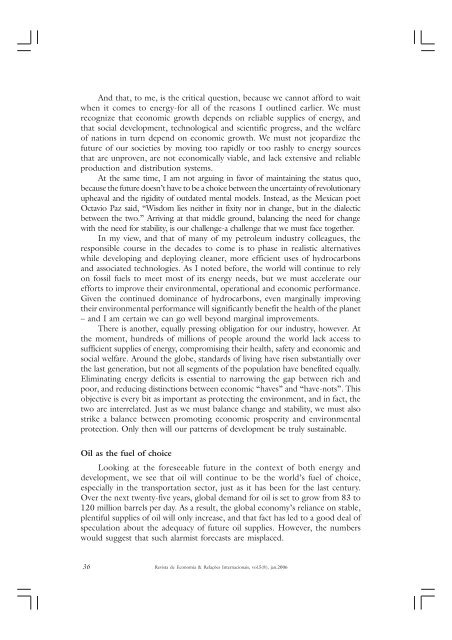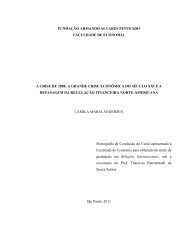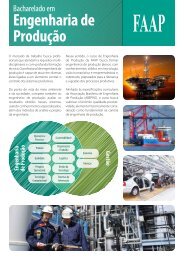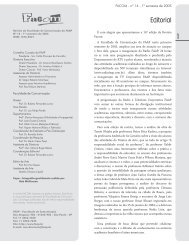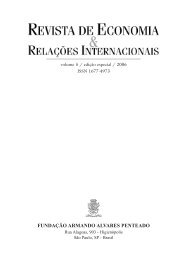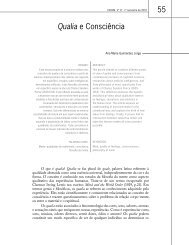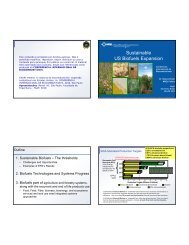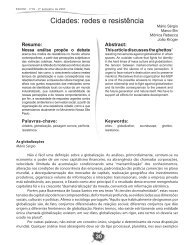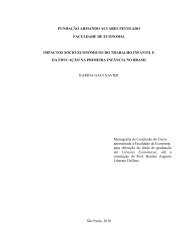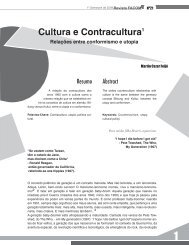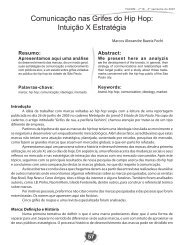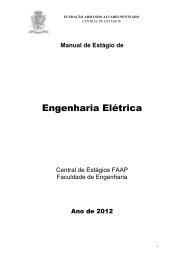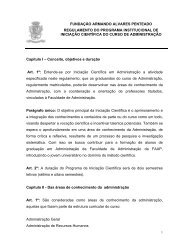Número 8 - Janeiro 2006 - Faap
Número 8 - Janeiro 2006 - Faap
Número 8 - Janeiro 2006 - Faap
Create successful ePaper yourself
Turn your PDF publications into a flip-book with our unique Google optimized e-Paper software.
And that, to me, is the critical question, because we cannot afford to wait<br />
when it comes to energy-for all of the reasons I outlined earlier. We must<br />
recognize that economic growth depends on reliable supplies of energy, and<br />
that social development, technological and scientific progress, and the welfare<br />
of nations in turn depend on economic growth. We must not jeopardize the<br />
future of our societies by moving too rapidly or too rashly to energy sources<br />
that are unproven, are not economically viable, and lack extensive and reliable<br />
production and distribution systems.<br />
At the same time, I am not arguing in favor of maintaining the status quo,<br />
because the future doesn’t have to be a choice between the uncertainty of revolutionary<br />
upheaval and the rigidity of outdated mental models. Instead, as the Mexican poet<br />
Octavio Paz said, “Wisdom lies neither in fixity nor in change, but in the dialectic<br />
between the two.” Arriving at that middle ground, balancing the need for change<br />
with the need for stability, is our challenge-a challenge that we must face together.<br />
In my view, and that of many of my petroleum industry colleagues, the<br />
responsible course in the decades to come is to phase in realistic alternatives<br />
while developing and deploying cleaner, more efficient uses of hydrocarbons<br />
and associated technologies. As I noted before, the world will continue to rely<br />
on fossil fuels to meet most of its energy needs, but we must accelerate our<br />
efforts to improve their environmental, operational and economic performance.<br />
Given the continued dominance of hydrocarbons, even marginally improving<br />
their environmental performance will significantly benefit the health of the planet<br />
– and I am certain we can go well beyond marginal improvements.<br />
There is another, equally pressing obligation for our industry, however. At<br />
the moment, hundreds of millions of people around the world lack access to<br />
sufficient supplies of energy, compromising their health, safety and economic and<br />
social welfare. Around the globe, standards of living have risen substantially over<br />
the last generation, but not all segments of the population have benefited equally.<br />
Eliminating energy deficits is essential to narrowing the gap between rich and<br />
poor, and reducing distinctions between economic “haves” and “have-nots”. This<br />
objective is every bit as important as protecting the environment, and in fact, the<br />
two are interrelated. Just as we must balance change and stability, we must also<br />
strike a balance between promoting economic prosperity and environmental<br />
protection. Only then will our patterns of development be truly sustainable.<br />
Oil as the fuel of choice<br />
Looking at the foreseeable future in the context of both energy and<br />
development, we see that oil will continue to be the world’s fuel of choice,<br />
especially in the transportation sector, just as it has been for the last century.<br />
Over the next twenty-five years, global demand for oil is set to grow from 83 to<br />
120 million barrels per day. As a result, the global economy’s reliance on stable,<br />
plentiful supplies of oil will only increase, and that fact has led to a good deal of<br />
speculation about the adequacy of future oil supplies. However, the numbers<br />
would suggest that such alarmist forecasts are misplaced.<br />
36 Revista de Economia & Relações Internacionais, vol.5(8), jan.<strong>2006</strong>


